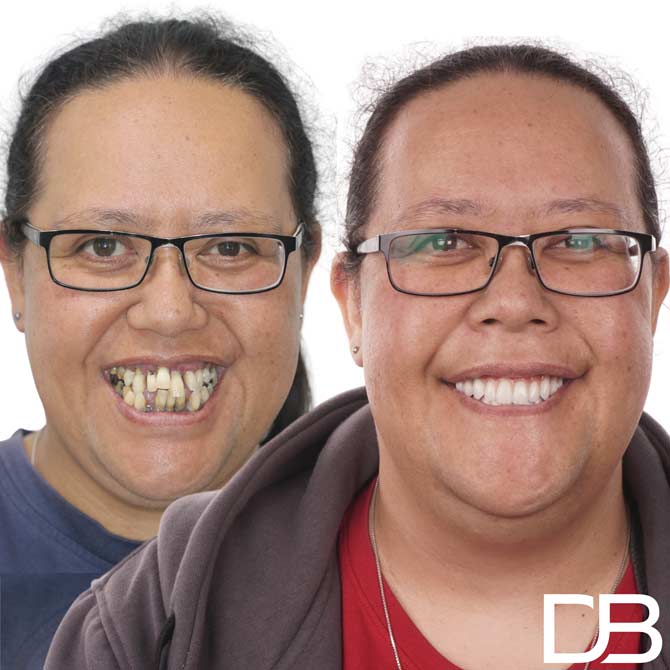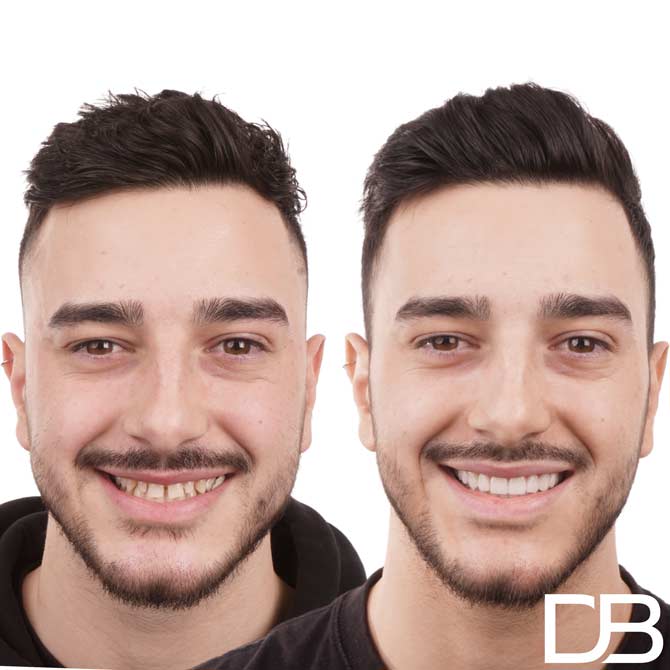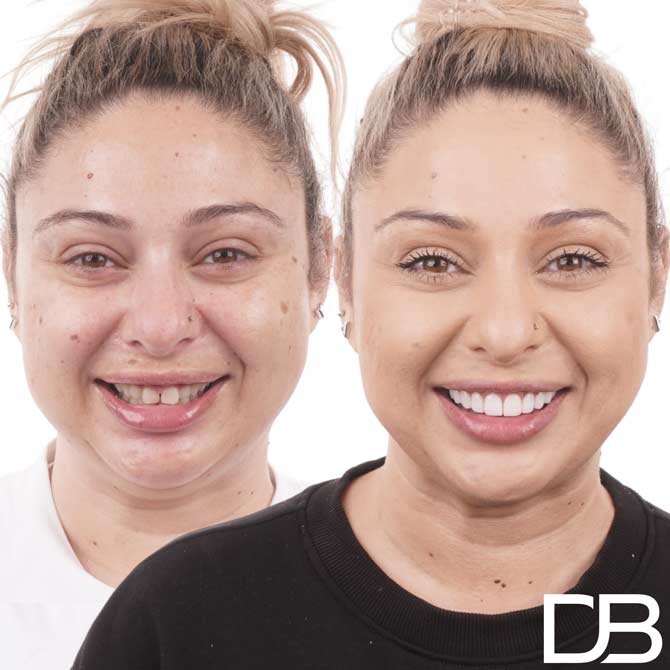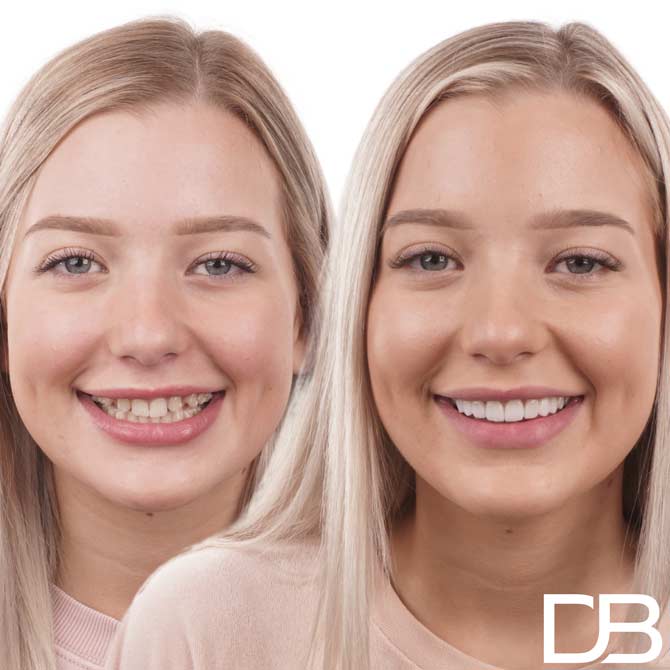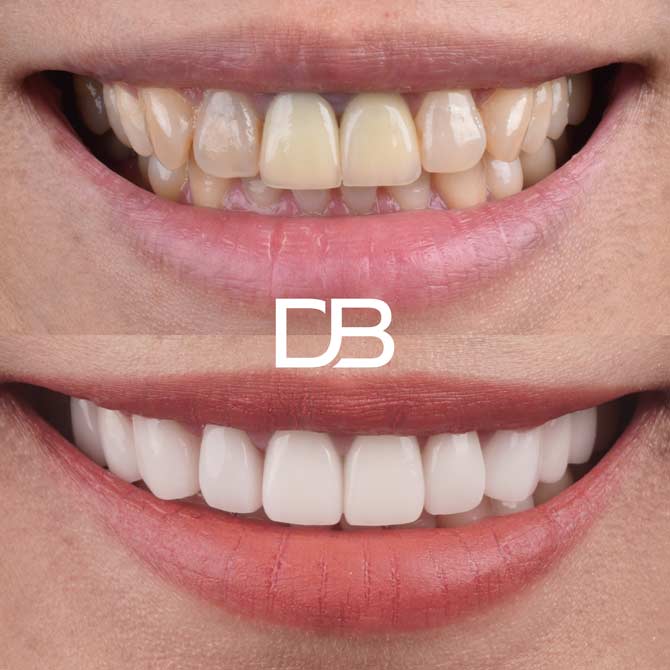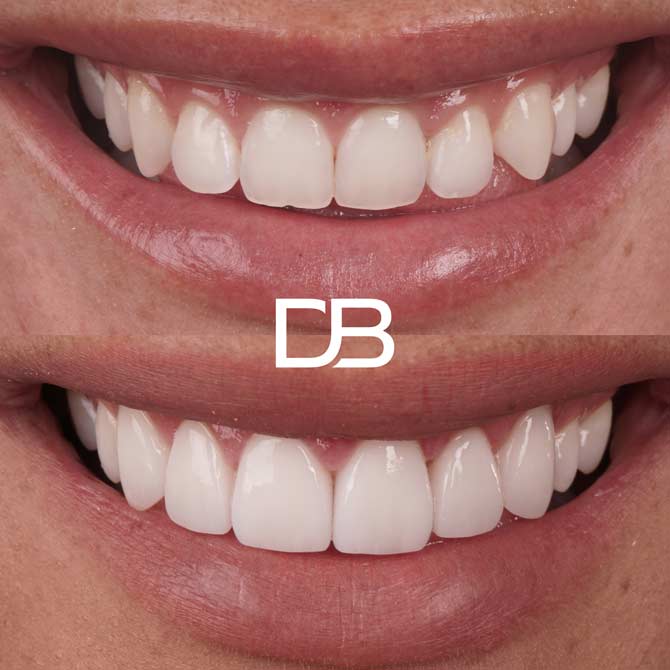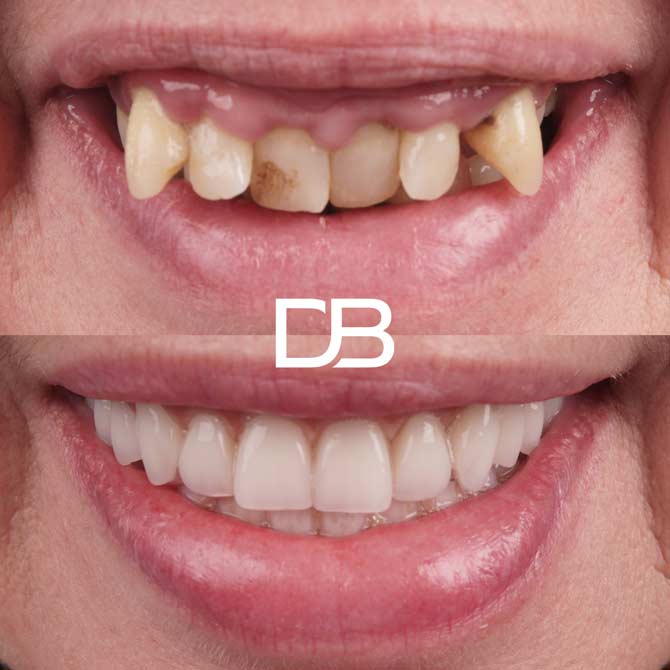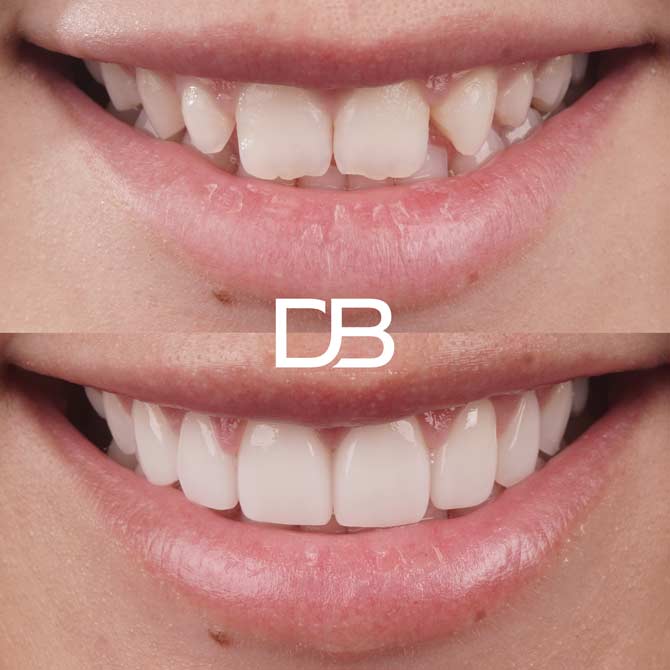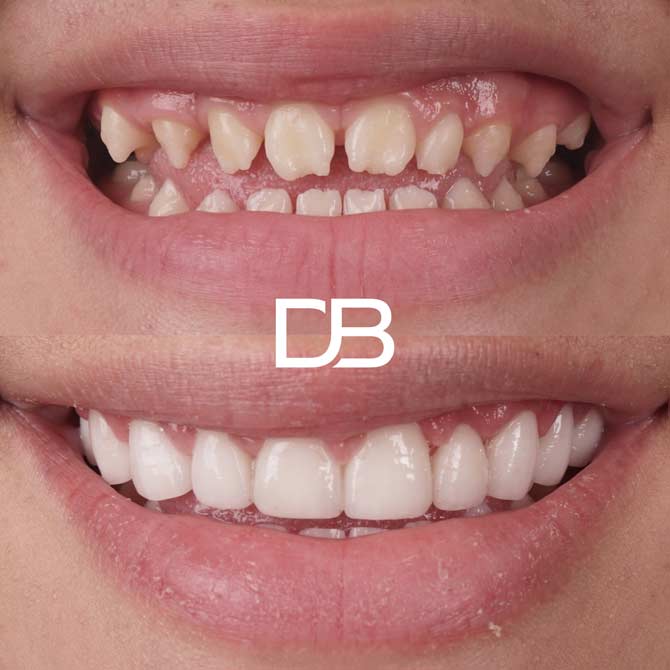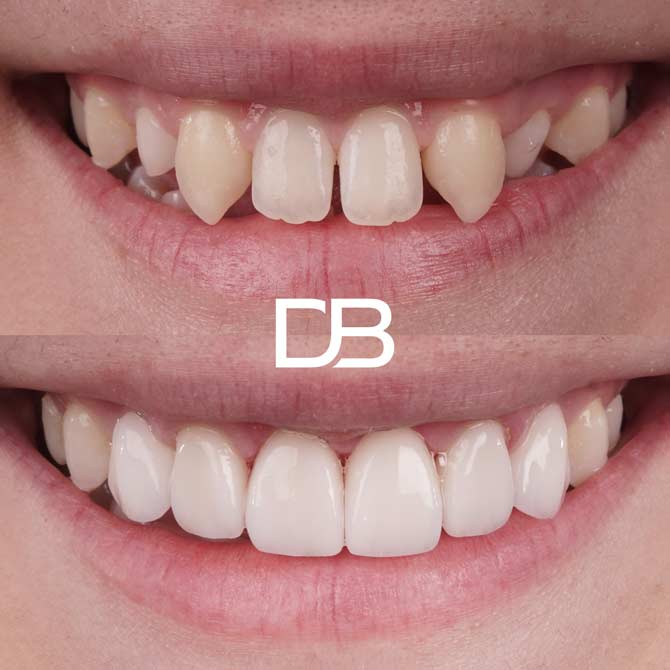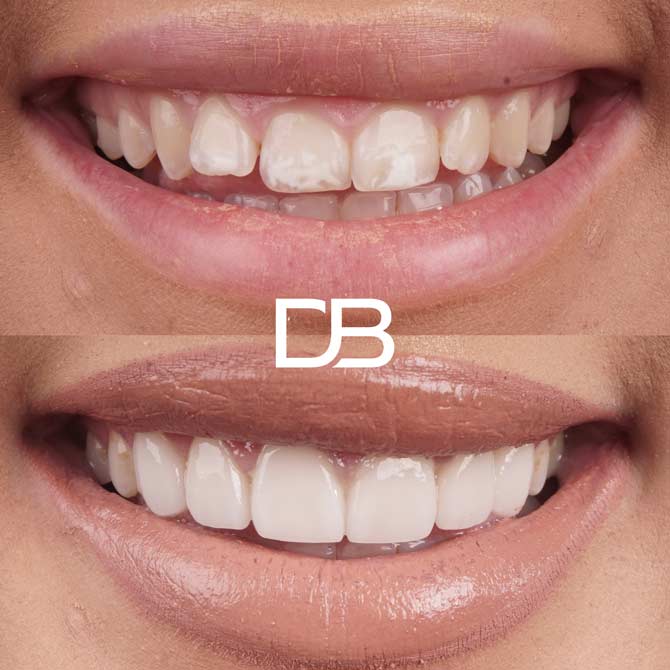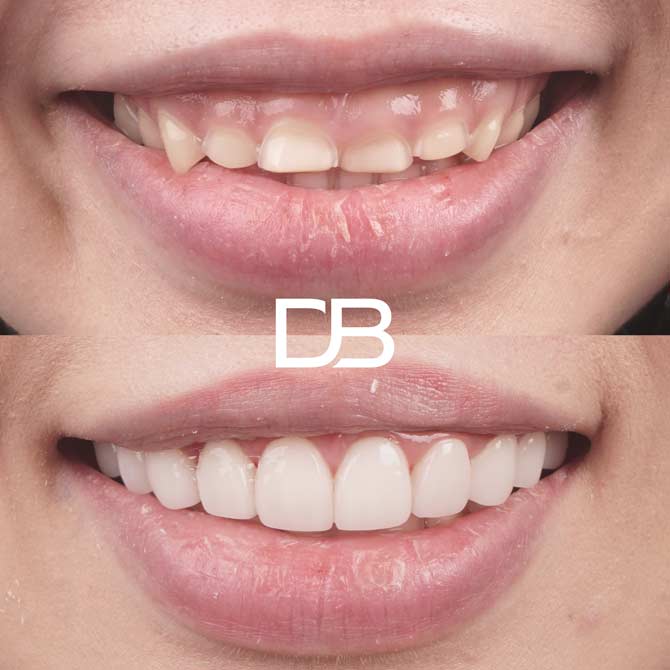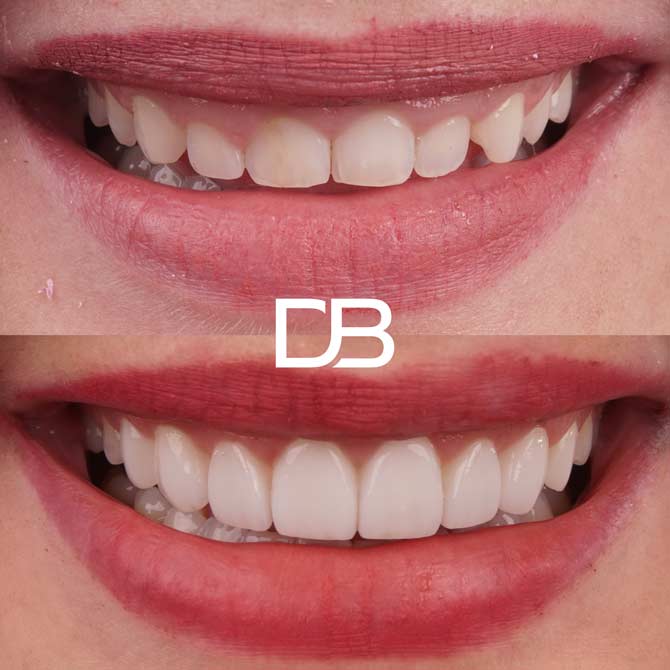Just a few months ago I had a lady who came into the office wanting to get veneers done. And when she sat in the chair and she spoke to me about her wants, needs and concerns, one thing popped up to me really clearly was that she was actually afraid of getting veneers done.
Now she’s seen her friends and family getting veneers done, but they look a bit horsey, a bit big. Some of her friends have got teeth looking a bit like Bugs Bunny, and it bothers her! Although she’s been to multiple practices and multiple other consults, that has stopped her from proceeding to the next step.
Her concern is one of the concerns that we get all the time in our practice here, because it actually makes patients not want to do veneers, because they’re fearful of the unknown. They fear what it will look like, the pain and all of these unnecessary things that can be easily solved. One of the things is with veneers, you can see what the veneers would look like even before you start treatment. This is really important because you will want to try it on before you buy it. It’s like if you’ve got a pair of shoes or you see a pair of shoes that looks beautiful, or a pair of jeans. You want to try it on. It doesn’t mean that when you look on a mannequin, it looks great and fits a mannequin. It may not fit you as a person.
And that’s what the temporary or trial veneer will do for you. With a temporary veneer, we will actually will take a mould of your existing teeth, and based on that model, we will then create a blueprint of what the end result will look like. Using that blueprint, we’ll then use a specialised mixture of wax and plastic that you fit it in your mouth. And we leave it there for a day, or even up to two weeks if you wanted to. This means you can go home and see your friends, your family, your loved ones and show them what the potential results with the veneers look like. Now you have got to remember that because it’s made of wax and plastics, the colour or the texture may not be 100 percent correct, but you can get the feel for the overall look. That way you can go into permanent veneers without any hesitation.
So if you’re looking for veneers, for example, to get your teeth beautiful, your smile nice and white and bright, you might want to see someone who offers this process for the patients where you actually get to feel, and you’ll basically get to see what is the veneer before you start. If you see a dentist and you’re seeing someone about veneers now, and the dentist doesn’t do it, insist on it! Because this will make or break your case. Now if the dentist doesn’t do it, you might want to then look at someone else who can actually help you with this further, because you want to do it once, do it right and never do this again.


